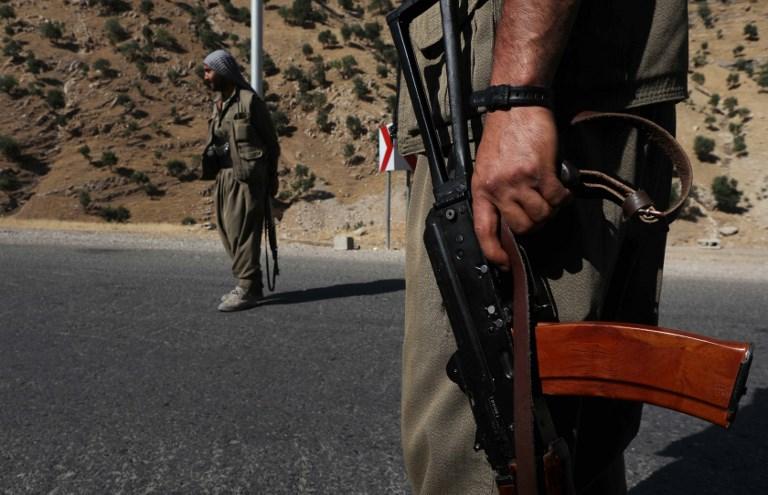Two Iraqi troops killed in rare clashes with PKK: army
BAGHDAD: Two Iraqi soldiers were killed in rare clashes Sunday with the Kurdistan Workers Party (PKK) in the north of the country where the group has bases, the army said overnight.
The PKK, seen as a “terrorist” group by Turkey, the United States and the European Union, has waged an insurgency against the Turkish state since 1984.
It has rear bases in the Qandil mountain area of Iraq’s autonomous Kurdish region.
An Iraqi military statement said PKK fighters “attacked an army checkpoint in the (northern) Nineveh province… (and) two soldiers were killed” around 100 kilometers west of Mosul near the Syria border.
Five PKK members were wounded in the clashes which erupted when an Iraqi soldier manning the checkpoint asked the group for a permit, usually issued by Iraqi security forces, which would allow them to go across.
“It is the first time that we have confrontations of this scale in the region,” Mohammad Khalil, the mayor of the nearby city of Sinjar, told AFP.
The PKK deployment in northern Iraq has been a constant source of tension between Baghdad and Ankara, with Turkey pressing Iraq to play a bigger role in fighting the group.
Earlier this month Turkish Interior Minister Suleyman Soylu said his country would carry out a joint operation with Iran against the PKK.
Soylu did not specify which PKK bases the planned operation would target but President Recep Tayyip Erdogan has previously said it would be against militant hideouts in Iraq.
Like Turkey, Iran has for decades fought the PKK affiliate, the Party of Free Life of Kurdistan (PJAK), which also has rear bases in neighboring Iraq.
The Turkish military has often bombed PKK bases in Iraq’s mountainous regions.
In January, one person was killed when Turkish troops opened fire at Iraqi Kurds who stormed a Turkish army position in northwestern Iraq to protest the deaths of four civilians in alleged Turkish bombardment.
Baghdad summoned the Turkish ambassador while Ankara accused the PKK of having provoked the incident.
US-backed Kurdish fighters are leading the battle against the Daesh group in Syria.

Iranian border guard killed in fight with armed group near IraqTurkey says two of its soldiers killed, eight wounded in northern Iraq


